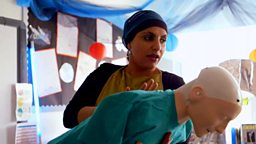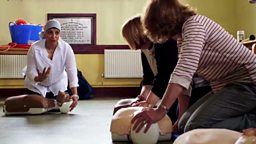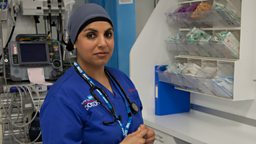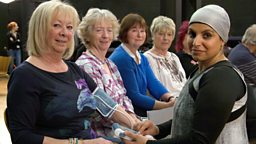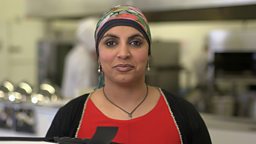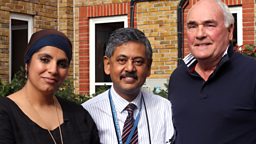How can you improve your health if you're living with cancer?
More than one in three of us in the UK will develop cancer during our lifetime. There are more than 200 different forms of the disease, and it can occur at any age, almost anywhere in the body. The most common forms are breast, lung, prostate and bowel cancer. Yet despite its prevalence, our chances of surviving cancer today are more than double what they were in the 1970s. So what can you do to manage and even improve your health if you’re living with cancer?

Exercise
Being overweight increases the risk of 13 types of cancer, as does a sedentary, inactive lifestyle. However two recent, large-scale trials show that at least 25 minutes a day of brisk walking can make a difference. It can be easier than you think to increase your activity levels and you don’t have to do it all in one go. Making small changes, like taking the stairs instead of the lift or making short journeys on foot, can really help. What’s more, anything that makes you a bit warmer and slightly out of breath counts as moderate activity – which can include housework and gardening too!
Diet
Research suggests that a diet that includes plenty of fibre as well as colourful fruits and vegetables may help reduce your risk of cancer. Strong evidence shows that eating lots of processed and red meat can increase the risk of bowel cancer, and possibly stomach and pancreatic cancer. It’s also advisable to cut down on your alcohol consumption as this has been linked to multiple cancers.
Smoking
Smoking accounts for 30% of all cancer deaths and 87% of lung cancer deaths. The risk of developing lung cancer is about 23 times higher in male smokers compared to non-smokers. Stopping smoking is one of the biggest things you can do to avoid cancer and to help avoid a recurrence.
Mental Health
More than half of cancer patients are affected by depression and anxiety, and it’s thought that this figure could be as high as 90%. Depression is not a sign of personal failure or an inability to cope. Talk to your doctor about how you’re feeling and don’t be afraid to ask questions. You may be prescribed anti-depressants which can lift your mood enough for you to feel less negative and more able to cope with things. Another option is to try a talking therapy such as counselling, cognitive behavioural therapy (CBT) or psychotherapy – your GP or specialist will be able to discuss what’s best for you.
Organisations such as Maggie’s, Macmillan and Cancer Research UK can also be extremely good places for information. Some of them also organise groups where those living with cancer can meet and interact. Many are staffed by cancer support specialists, benefits advisors, nutritionists, therapists and psychologists.
Questions
Being diagnosed with cancer can be extremely difficult to deal with, but it’s important that you ask your doctor and specialist the right questions to understand your options and how any treatments might affect you. It might be helpful to write down a list of questions to ask which cover the following topics:
- Tests and results: What are the tests for? What do they involve? When will I get my results?
- Diagnosis: What does my diagnosis mean? How advanced is my cancer? What will happen next?
- Treatment: What are my options? When will it start? How long will it last? What are the survival rates? Will the treatment cure my cancer? What are the possible side effects? How might the treatment affect my day to day life? What will happen if I do nothing?
- Follow up: Who can I contact if I have more questions? Who can I talk to about how I feel? Who can I talk to about practical matters like work and finances?

